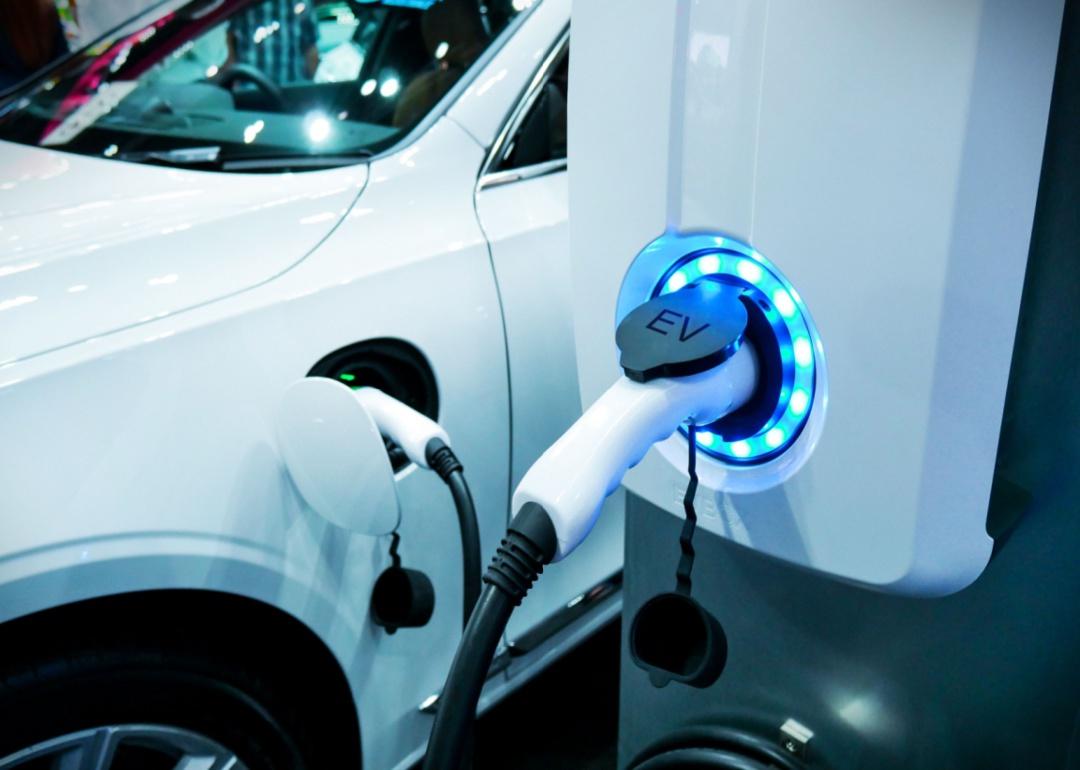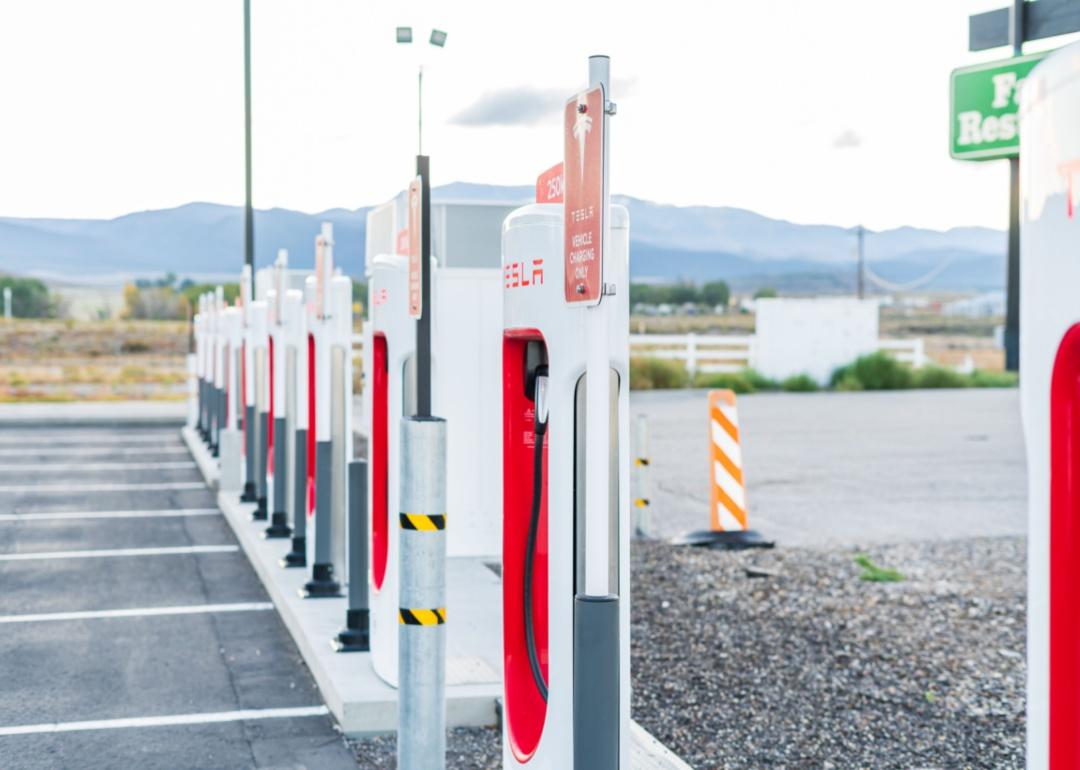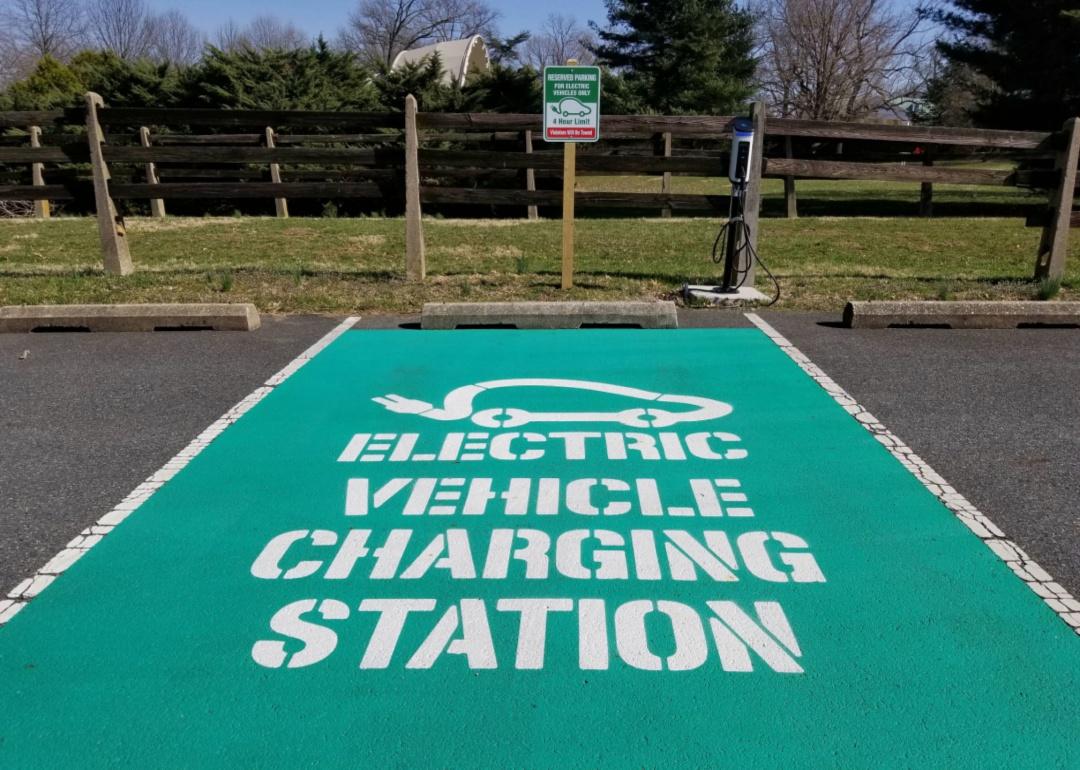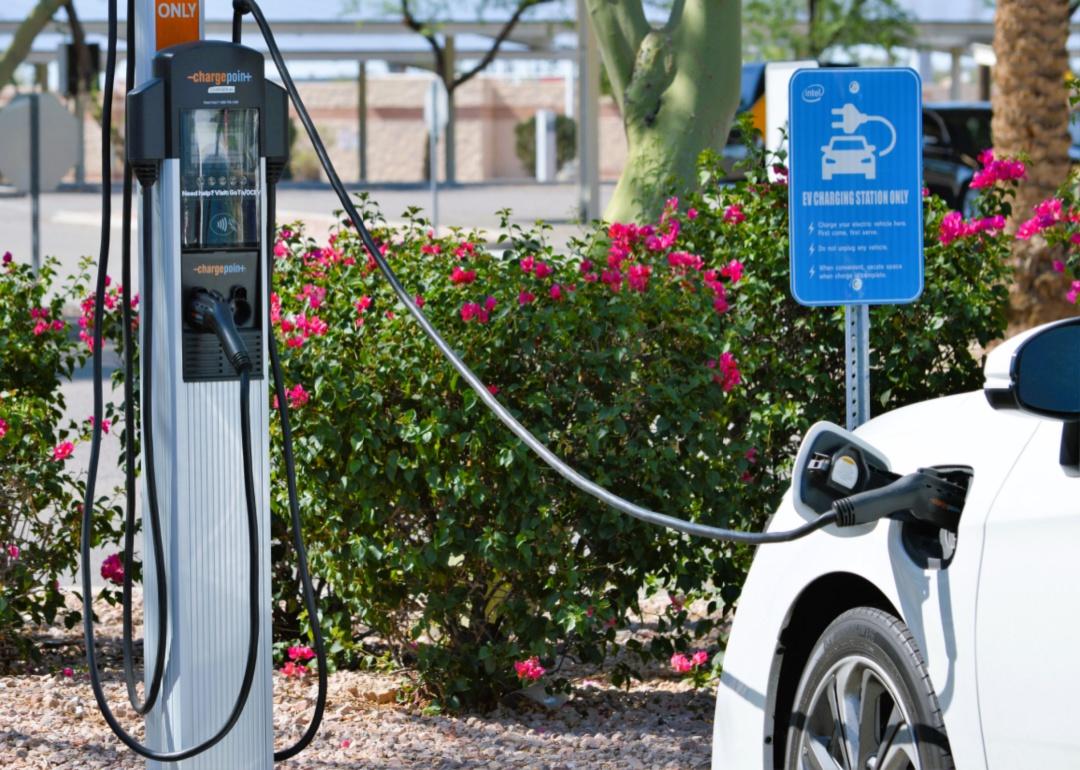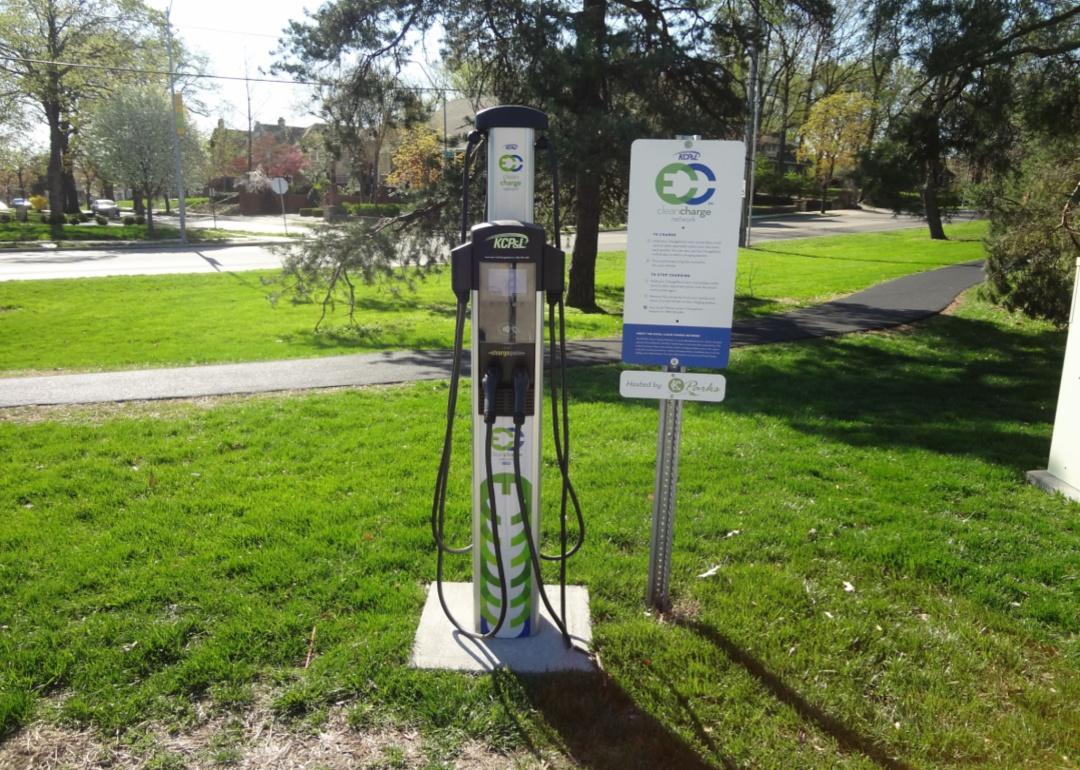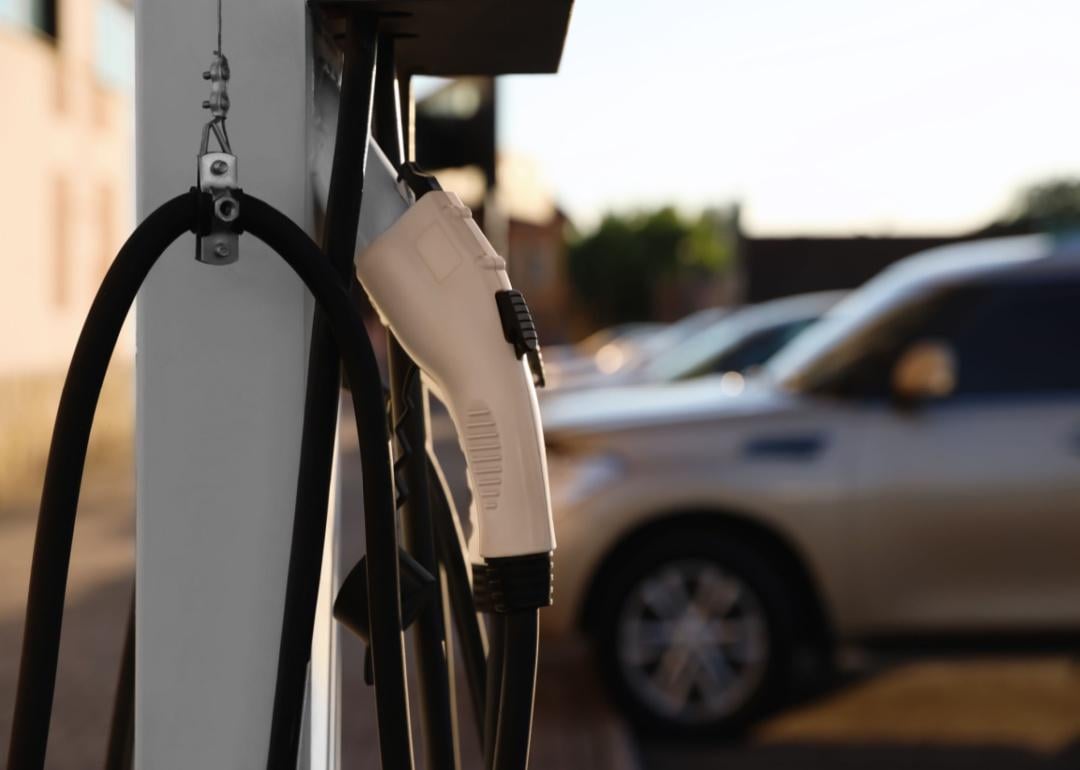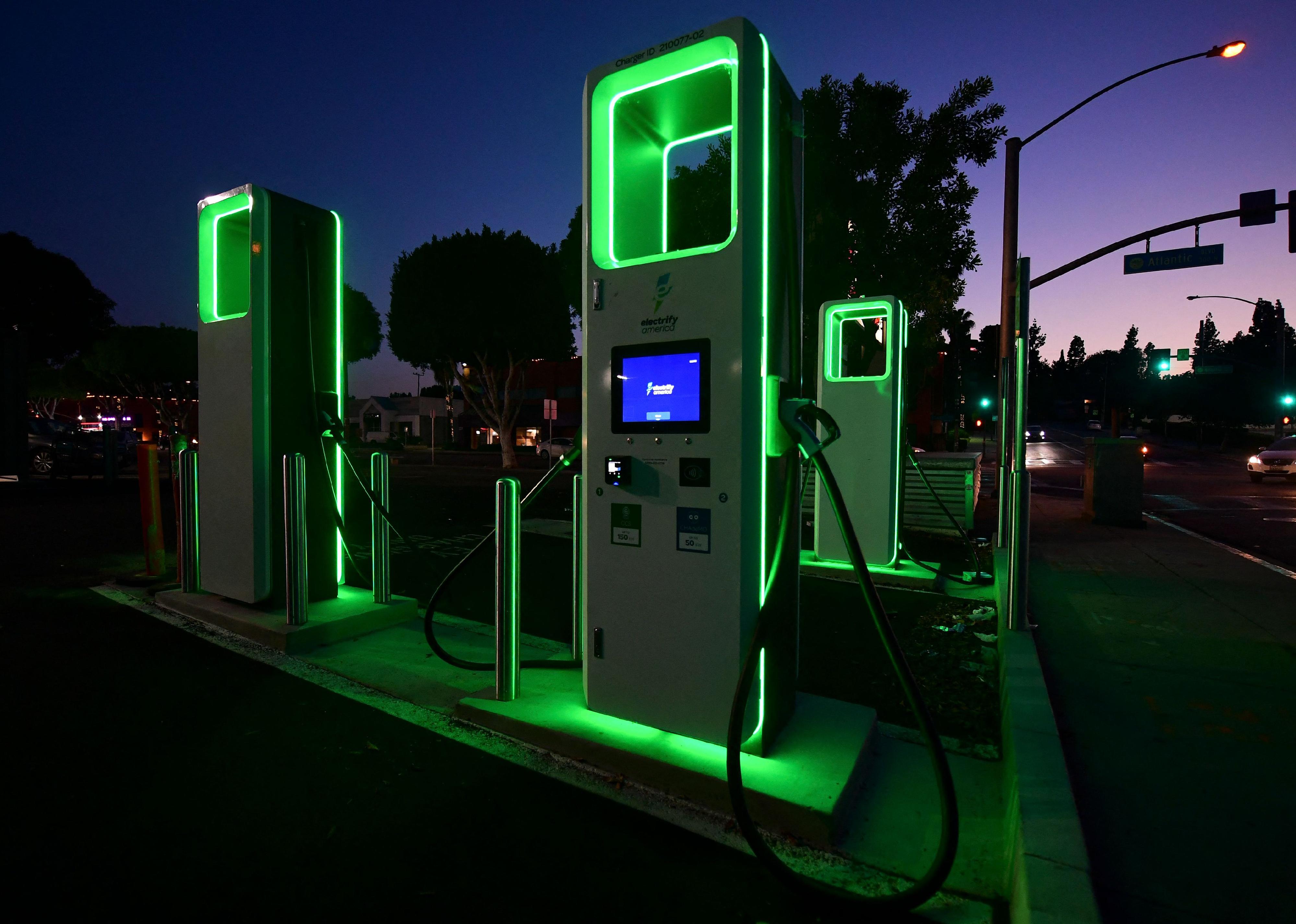10 states with the biggest increase in electric vehicle charging stations since 2020
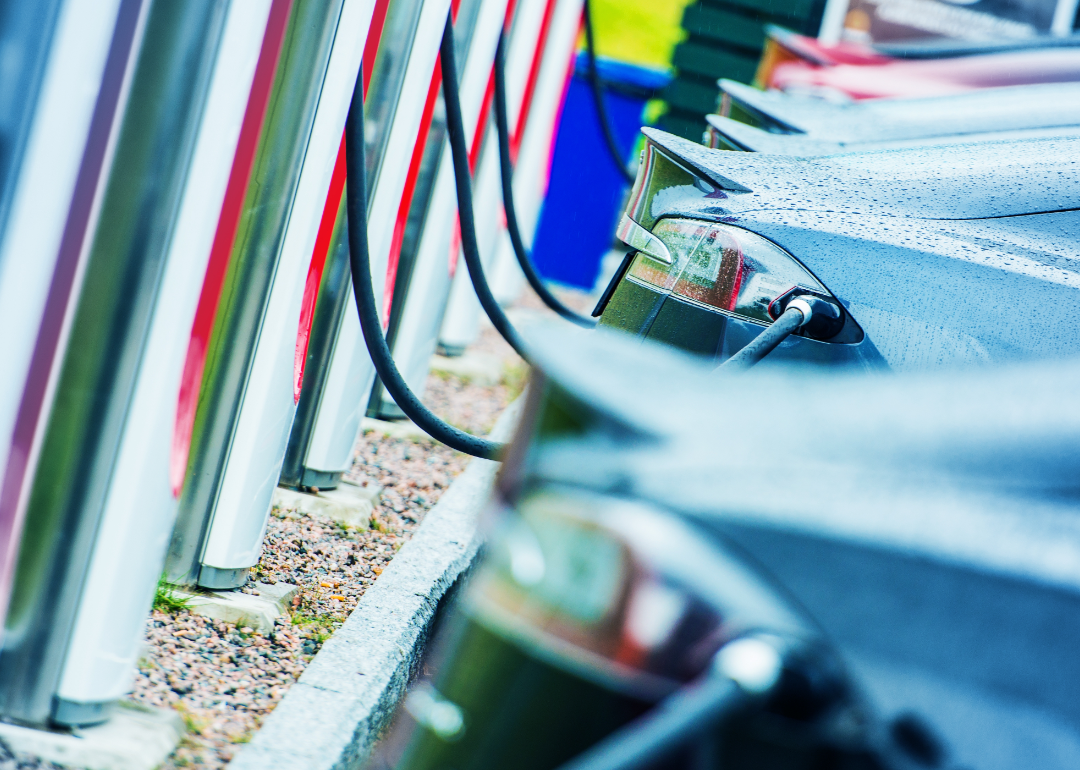
Canva
10 states with the biggest increase in electric vehicle charging stations since 2020
Multiple cars lined up at a charging station
Encouraging Americans to switch to electric vehicles is just one step toward nationwide, zero-emission vehicle utility. In addition to affordable, available fleets of electric vehicles, each state must have the infrastructure to support these cars. This includes adequate charging stations and “Alternative Fuel Corridors,” or a network of alternative fueling stations.
Per data from the U.S. Department of Energy, nearly 59% of all electric vehicle charging stations in the U.S. opened in the last two years. The General compiled a list of the 10 states across the country with the biggest increase in electric vehicle charging station openings in that time, using data from the U.S. Department of Energy. States were ranked by comparing the number of stations opened before and after September 2020. Progress seems to be distributed relatively evenly across regions, although two traditional tech hubs—California and Massachusetts—both found their way into the top five.
To help states move toward a zero-emission future, the Biden administration in November 2021 signed the Infrastructure Investment and Jobs Act, which will distribute $7.5 billion to update and install EV chargers along AFCs.
![]()
buffaloboy // Shutterstock
#10. Rhode Island
A closeup of a white vehicle charging.
– Electric vehicle charging stations opened September 2020 and earlier: 103
– Electric vehicle charging stations opened after September 2020: 160
– Percentage increase in total stations 2020-22: 155.3%
Rhode Island had 2,550 registered electric vehicles as of Dec. 31, 2021. This total could have been influenced by the Electrify RI charging station incentive, which ended in July 2021. That program used $1.4 million to install a series of EV charging stations throughout the state. However, Rhode Island’s dedication to zero-emission vehicles does not stop at cars: Its Public Transit Authority is also piloting an electric bus system.
Arina P Habich // Shutterstock
#9. Utah
Empty Tesla charging station in Utah with mountains in the background.
– Electric vehicle charging stations opened September 2020 and earlier: 276
– Electric vehicle charging stations opened after September 2020: 438
– Percentage increase 2020-22: 158.7%
Utah had 16,480 registered electric vehicles at the beginning of 2022. To encourage the purchase of electric vehicles and their charging stations, various incentives have been introduced.
Among these are Rocky Mountain Power’s Residential Electric Vehicle Charging Station rebate, which returns $200 to individuals who install a charging station. Together with seven other Western states, Utah is part of the Intermountain West Electric Vehicle Corridor, which will facilitate EV travel through those states’ major highways. Uniquely, Utah offers tax credits for residents who buy heavy-duty electric cars, while most other states only do so for light EVs.
Khairil Azhar Junos // Shutterstock
#8. Delaware
A designated green parking spot for electric vehicle charging station in front of a black fence.
– Electric vehicle charging stations opened September 2020 and earlier: 43
– Electric vehicle charging stations opened after September 2020: 73
– Percentage increase 2020-22: 169.8%
Delaware’s 3,010 registered EVs will likely rise in coming years as incentive programs in the state take hold. The Delaware Clean Vehicle Rebate program encourages citizens to buy or lease zero-emission vehicles. Under the program, anyone who has bought or leased an EV is eligible for anywhere from $1,000 to $2,500 in return. This includes battery and plug-in EVs and vehicles running on propane or natural gas. The program is in effect until Dec. 31, 2022.
Around the World Photos // Shutterstock
#7. Arizona
A small white car charging at a charging station at an employee parking spot.
– Electric vehicle charging stations opened September 2020 and earlier: 311
– Electric vehicle charging stations opened after September 2020: 536
– Percentage increase 2020-22: 172.3%
Arizona took advantage of the IIJA quickly, becoming one of the first states to approve its plans for installing and accommodating additional electric charging stations. The state currently has 40,740 registered electric vehicles.
Over the coming year, Arizona will have access to $27.6 million to begin implementing EV infrastructure, with a remaining $48.9 million available over the next five years. The Arizona Department of Transportation will designate Alternative Fuel Corridors and new charging stations. Existing stations will also be updated, with key locations continually identified.
Jon Kraft // Shutterstock
#6. Missouri
Charging station for electric vehicles at a park.
– Electric vehicle charging stations opened September 2020 and earlier: 349
– Electric vehicle charging stations opened after September 2020: 614
– Percentage increase 2020-22: 175.9%
Missouri’s electric vehicle inventory sits at 10,050, with infrastructure in place to encourage growth. The state’s Electric Vehicle Charging Station Grants fund the installation of charging stations through the Missouri Department of Natural Resources. Ameren, Evergy, and Kirkwood Electric all offer rebates for the purchase and installation of charging stations.
Missouri has begun working with the National Electric Highway Coalition to optimize the use of these stations. Stations will be strategically installed along major Missouri highways to enable long-distance travel by electric vehicle.
New Africa // Shutterstock
#5. Alaska
A white electric vehicle charging station.
– Electric vehicle charging stations opened September 2020 and earlier: 19
– Electric vehicle charging stations opened after September 2020: 34
– Percentage increase 2020-22: 178.9%
Alaska’s small number of 1,290 registered electric vehicles can be attributed to its small population, but its plethora of zero-emission incentive programs may change that. Under the Residential Electric Vehicle Charging Station Credit and Commercial Rebates partner program, Alaskans who install EV charging stations can be reimbursed by the Chugach Electric Association.
Individuals can receive $200 per station, and commercial customers can receive rebates ranging from $1,000 to $5,000 per station. Alaska Power and Telephone repays $1,000 to individuals who have purchased an electric vehicle. Alaska Electric Light & Power also provides EV owners a Time of Use-based rebate.
FREDERIC J. BROWN/AFP // Getty Images
#4. California
Electric vehicle charging station lit up in neon green at night.
– Electric vehicle charging stations opened September 2020 and earlier: 4,660
– Electric vehicle charging stations opened after September 2020: 8,935
– Percentage increase 2020-22: 191.7%
California holds the record for the country’s highest number of registered electric vehicles. At 563,070 EVs registered as of December 2021, the state is home to around 39% of all EVs in the country.
California has also laid out the most ambitious plans to encourage the use of electric vehicles so far. By 2035, new gasoline-powered cars will no longer be available for purchase, marking a total switch to zero-emission vehicles instead. To achieve this, vehicle manufacturers will have to increase the percentage of electric models produced to 35% in 2026, 68% in 2030, and finally, 100% in 2035.
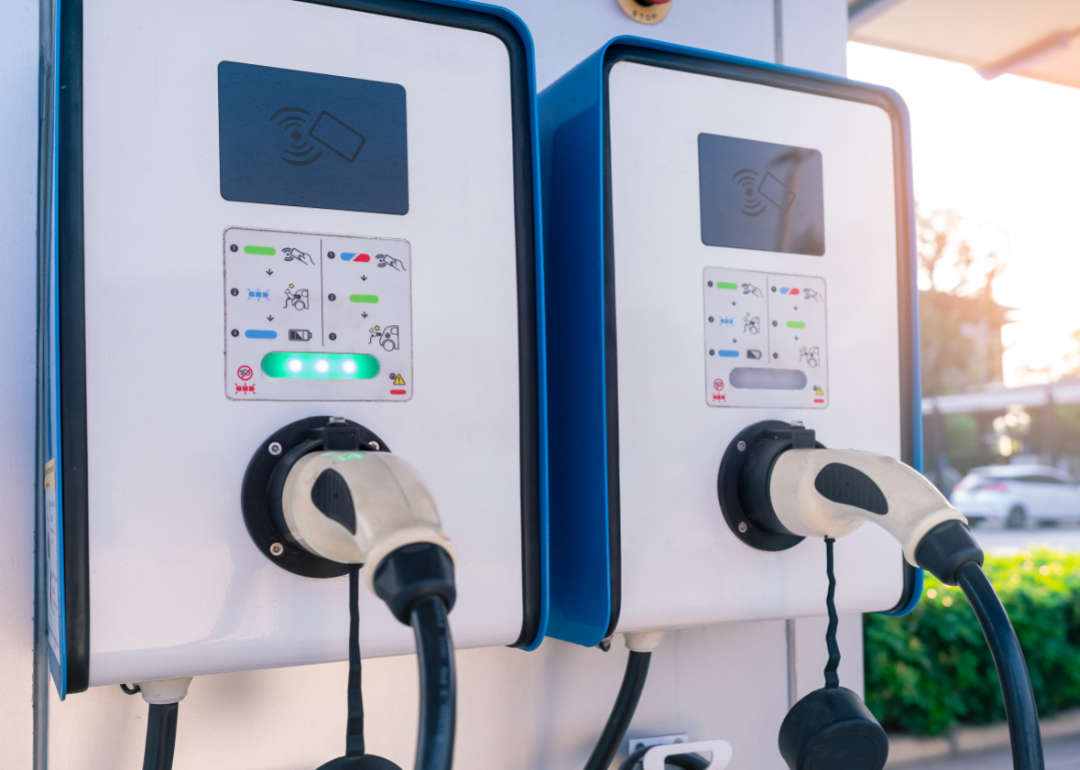
Canva
#3. Nebraska
Electric car charging station
– Electric vehicle charging stations opened September 2020 and earlier: 67
– Electric vehicle charging stations opened after September 2020: 137
– Percentage increase 2020-22: 204.5%
Though Nebraska may only have 2,710 registered electric vehicles, its many incentive programs will hopefully increase that number in the coming years. Around $6 million a year will be available to the state government for the next five years to build additional charging stations. These will be installed along designated AFCs, encompassing Interstate 80, Highway 31, and Highway 6.
Programs such as the Alternative Fuel Vehicle and Fueling Infrastructure Loans as well as the All-Electric Vehicle and EV Charging Station Rebates will allow individuals and corporations to take advantage of new EV-focused infrastructure. Loans and rebates ranging from $500 to $500,000 will encourage purchasing charging stations, batteries, and vehicles.
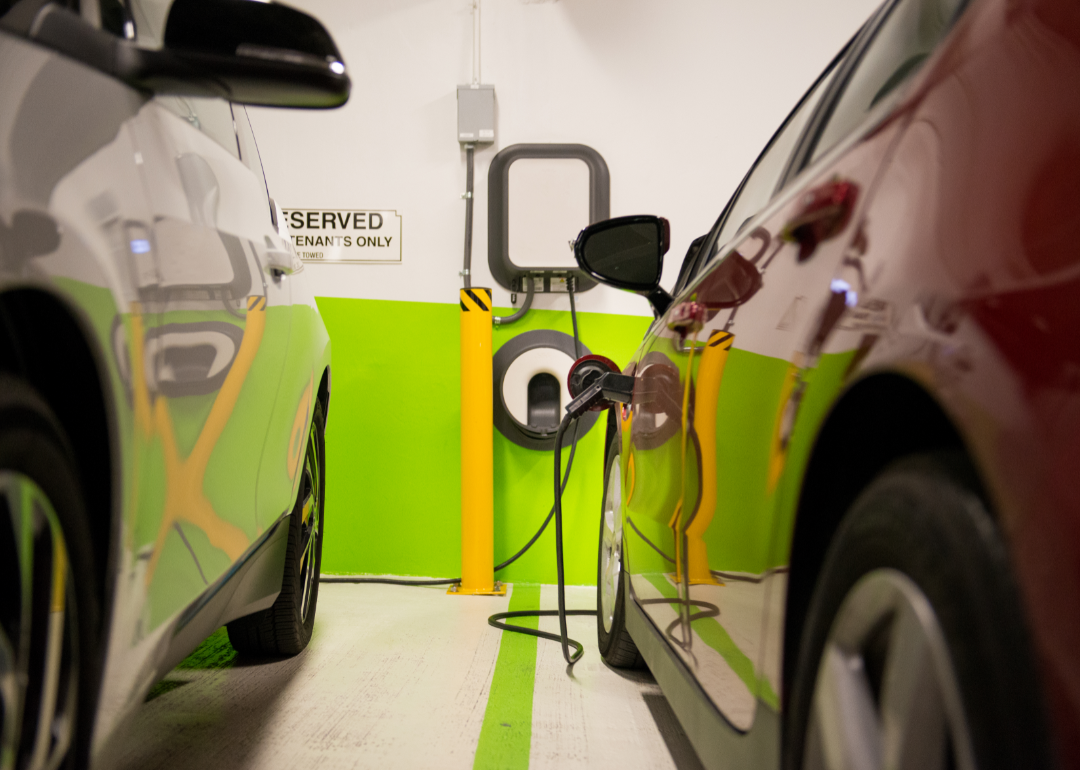
Canva
#2. Michigan
Two electric vehicles charge at an underground charging station
– Electric vehicle charging stations opened September 2020 and earlier: 328
– Electric vehicle charging stations opened after September 2020: 684
– Percentage increase 2020-22: 208.5%
It makes sense that Michigan would lead the way in transformative policies for vehicles, considering it is the vehicle manufacturing capital of the U.S. The state’s 17,460 registered electric vehicles stand to grow once several planned EV infrastructures are implemented. Gov. Gretchen Whitmer recently announced that the companies Gotion and Our Next Energy will build EV battery plants worth around $4 billion in Big Rapids and Wayne County.
Initiatives like the Charge Up Michigan Placement Project and Alternative Fuel Vehicle Emissions Inspection Exemption incentivize individuals to opt for electric vehicles. Michigan has also made efforts to drum up excitement around electric vehicles with events like electric vehicle ride-and-drives, where locals can test drive EVs.
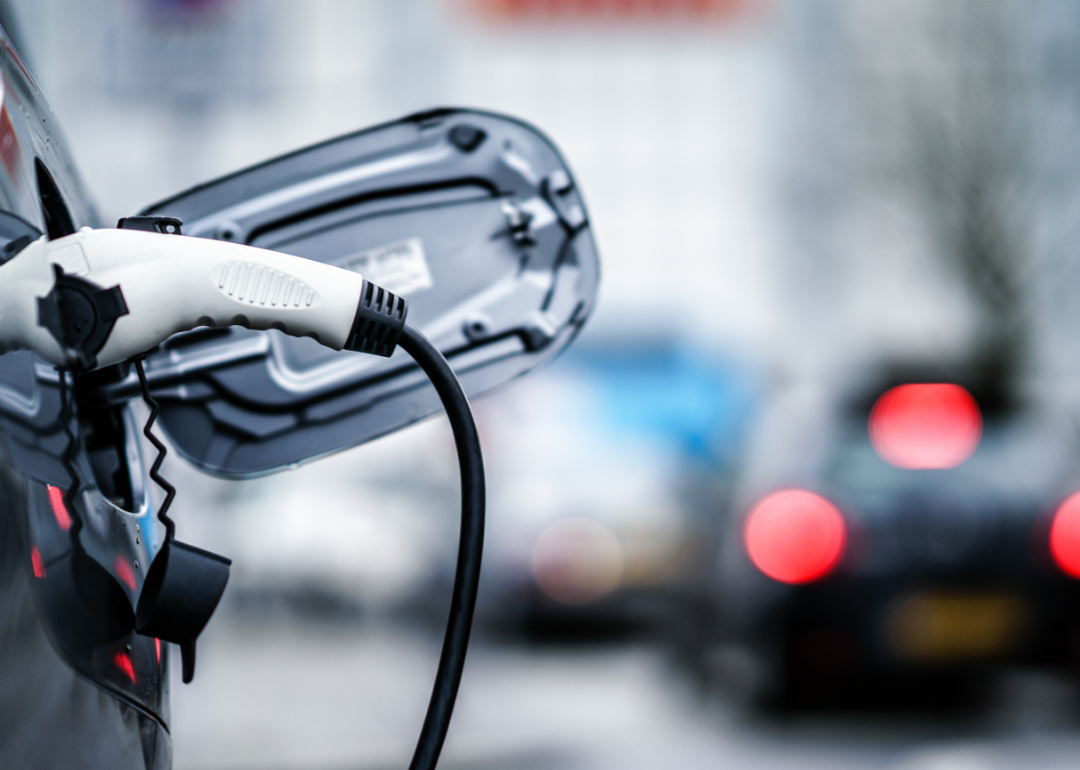
Canva
#1. Massachusetts
A car being charged on the street
– Electric vehicle charging stations opened September 2020 and earlier: 637
– Electric vehicle charging stations opened after September 2020: 1,499
– Percentage increase 2020-22: 235.3%
Massachusetts’ most recent number of registered electric vehicles came in at 30,470. Considering the state had the largest increase in charging stations since 2020, this number can only be expected to grow in the coming years.
Massachusetts has multiple incentive programs to help bolster these numbers, particularly from Massachusetts Offers Rebates for Electric Vehicles. This allows individuals and businesses who have recently purchased electric vehicles to apply for $4,000 in rebates and battery funds. Additionally, through the Massachusetts Department of Environmental Protection Electric Vehicle Incentive Program, employers can have up to 60% of funding covered to install electric vehicle charging stations.
This story originally appeared on The General and was produced and
distributed in partnership with Stacker Studio.
